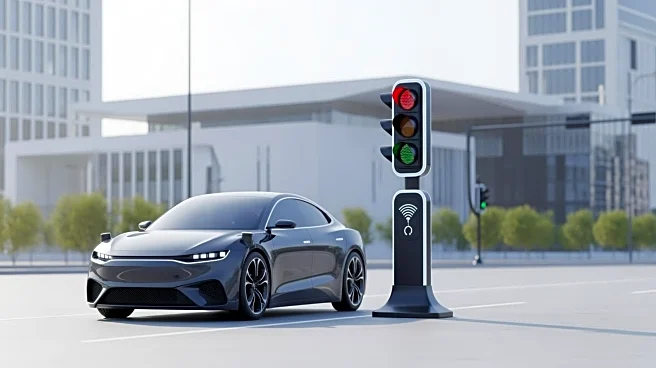What's Happening?
James Philbin, Head of Autonomy and AI at Rivian, and Charlie Tyson, Technology Activation Director at Michigan's Office of Future Mobility & Electrification, are addressing the challenge of building public
trust in self-driving cars. As autonomous vehicles transition from science fiction to reality, automakers and city leaders are working to encourage adoption while ensuring safety. The discussion, hosted by Business Insider, explored how to prepare communities for the impact of self-driving technology, including infrastructure changes and human behavior adaptation. The conversation also covered readiness for pilot programs and strategies for teaching autonomous vehicles to handle adverse weather conditions.
Why It's Important?
The integration of self-driving cars into everyday life has significant implications for urban planning, transportation safety, and the automotive industry. As these vehicles become more prevalent, they promise to reduce traffic accidents and improve mobility for those unable to drive. However, public skepticism remains a barrier to widespread adoption. Building trust is crucial for the success of autonomous vehicles, as it affects consumer acceptance and regulatory support. The efforts by Rivian and Michigan's Office of Future Mobility & Electrification highlight the importance of collaboration between industry leaders and government agencies to address these challenges.
What's Next?
Future steps involve expanding pilot programs to test self-driving cars in various conditions and environments. Automakers and city planners will need to continue developing infrastructure that supports autonomous vehicles, such as smart traffic systems and dedicated lanes. Additionally, ongoing public education campaigns will be essential to address safety concerns and demonstrate the benefits of self-driving technology. Stakeholders, including government bodies and tech companies, are expected to play a pivotal role in shaping policies that facilitate the integration of autonomous vehicles into society.
Beyond the Headlines
The rise of self-driving cars could lead to broader societal changes, such as shifts in employment within the transportation sector and new ethical considerations regarding machine decision-making in critical situations. Long-term, autonomous vehicles may contribute to reduced urban congestion and lower emissions, aligning with environmental sustainability goals. The development of this technology also raises questions about data privacy and cybersecurity, as vehicles become increasingly connected.









